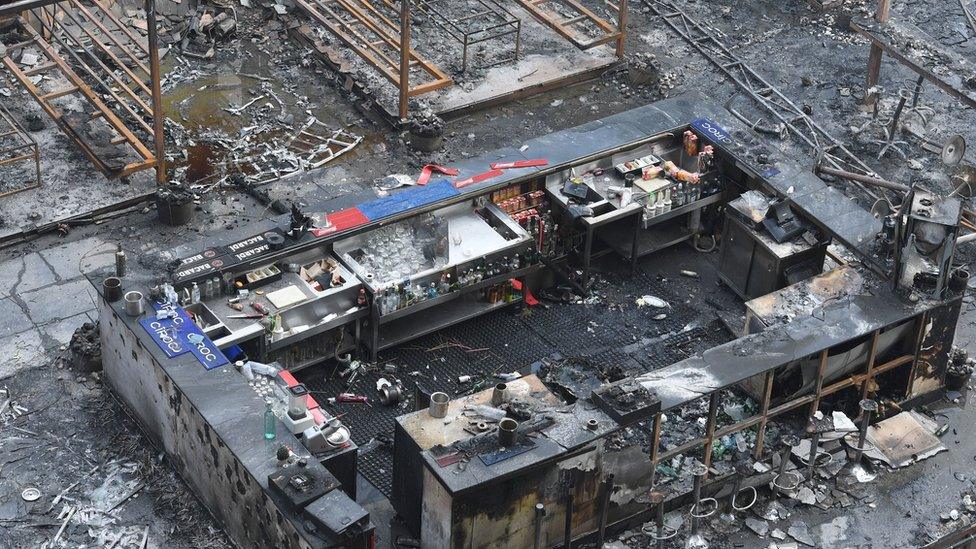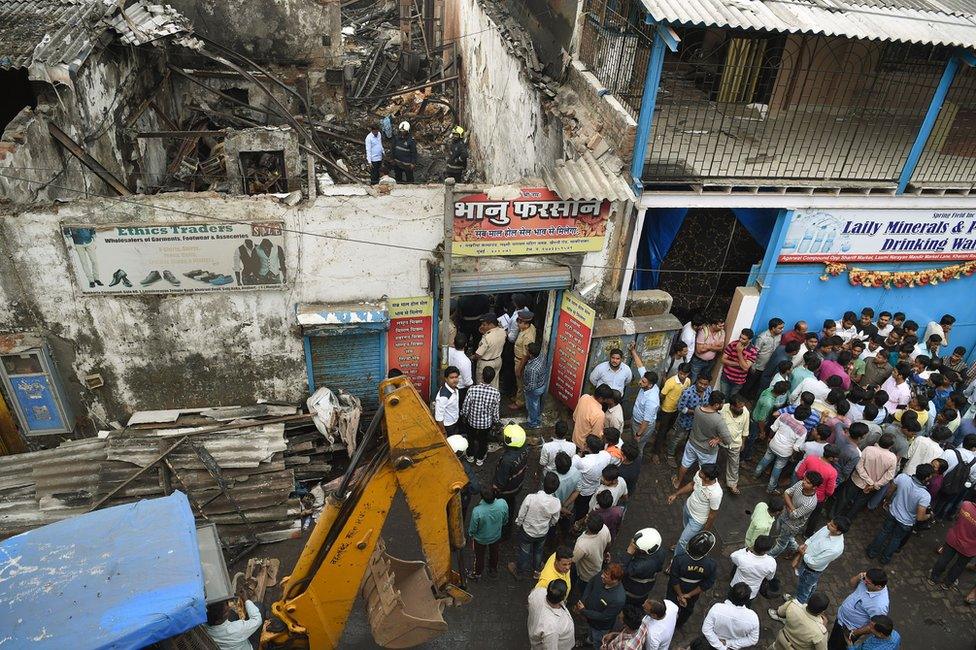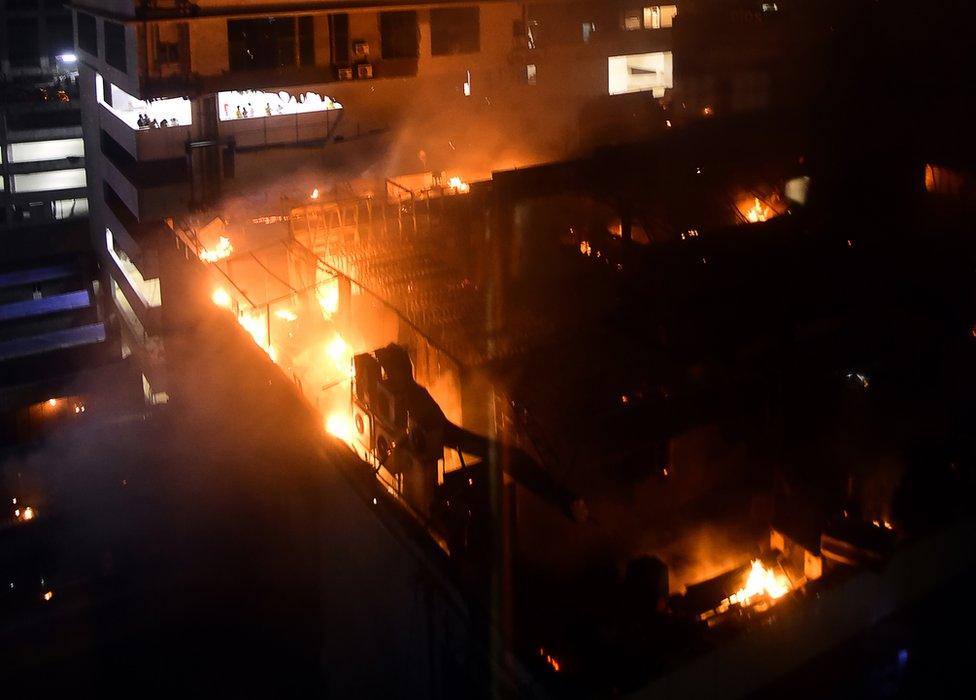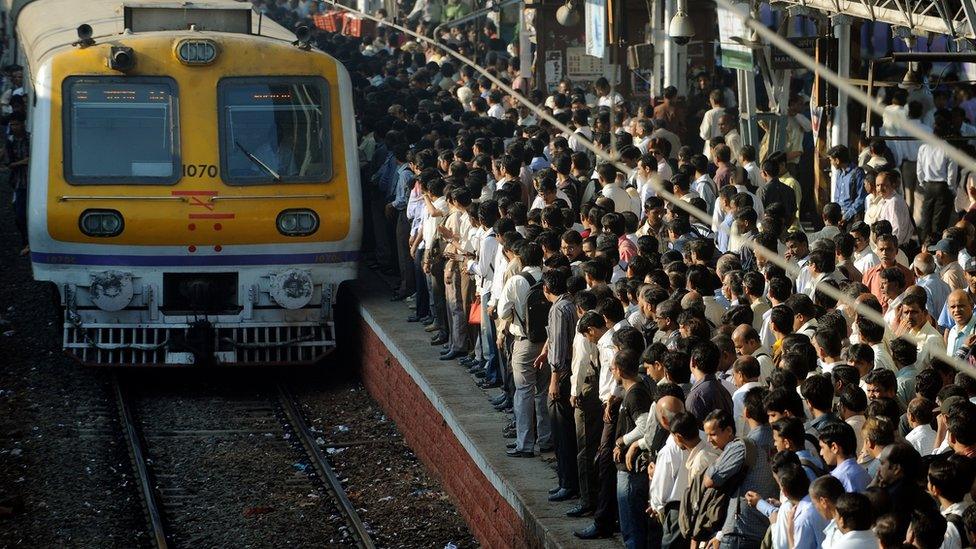India Mumbai fires: Why does everyone only remember Kamala Mills?
- Published

A fire ripped engulfed two rooftop pubs killing 14 people
In the last one month, more than 30 people have died in five separate fires in the western Indian city of Mumbai. But most people have only heard about the blaze at the trendy Kamala Mills district complex that killed 14 people. The BBC's Medhavi Arora explores why this is the case.
The outpouring of public anger that followed the massive fire which ripped through two rooftop pubs in Kamala Mills in the wee hours of 29 December shows no signs of abating.
The incident continues to make headlines across India, and on Thursday police announced that they had arrested three more people in connection with the incident, bringing the total number of those held to seven.
The attention both by the public and the media is noteworthy, given the fact that Mumbai is not new to freak accidents and infrastructure failures.
A fire that broke out inside a sweet shop in the city's Sakinaka area ten days earlier also killed 12 people, but received barely any coverage. One month later, it has been all but forgotten.

A fire in a sweet shop killed 12 people on 18 December
The twists and turns of the Kamala Mills case on the other hand, are still followed obsessively by the media.
Eyewitness Sharad Jadhav, a producer at a local news channel was an eyewitness to the fire. He was on a night shift when Mojo's Bistro caught fire above his office.
"The administration should pay attention to every such incident equally, and should not look at the wealth or the authority of the victims. They should treat everyone as human beings," he told the BBC.
But Naresh Fernandes, the Mumbai-based editor of news website scroll.in, feels that the media coverage of incidents is related to the reader demographics of the publication.
"There are ways in which you decide what news is. Where you are located and where your readers are located is a factor. There is a notion that the people in Kamala Mills could have been any one of our readers," he said.
"There is of course a great urban bias. Some of this has to do with the fact that people have news bureaus located in urban centres. If you're an editor, you'll be writing about things in your backyard," he added.
At the centre of the incident are two pubs - 1 Above and Mojo's Bistro - which have been involved in an ugly blame game over the incident.
Initial media reports and police statements blamed 1 Above for the fire, since the 14 who died were found in the pub's toilet where they had died of asphyxiation.
Meanwhile, the other pub - Mojo's - claimed that no deaths took place on its premises as it had followed appropriate fire safety norms.
But the tables turned when the Mumbai fire department released an investigation report last week, saying the embers from a hookah served at Mojos had started the fire

The blaze in Kamla Mills is thought to have started on the rooftop
The owners of 1 Above meanwhile, alleged that the influential owners of Mojo's Bistro were using their authority to sway press coverage and police investigation.
Mumbai police spokesperson Deepak Deoraj on Monday confirmed to BBC that one of the owners of Mojo's has been arrested, as well as two managers of 1 Above. On Thursday police arrested three co-owners of 1 Above.
Much of the outrage around the incident has centred around what is being perceived as collusion between the city's municipal authorities and the influential pub owners.
Now, business owners in Kamala Mills are concerned about the impact of the fire on their businesses.
Shripal Morakhia is the chairman of Smaaash, an entertainment arcade which has a branch in Kamala Mills.

Infrastructure failures are common in Mumbai where a railway station stampede killed 22 people last year
"It is sad that some promoters take shortcuts which result in so many lives being lost," he said. "What is sad is that authorities treat everyone as a rotten apple and such actions adversely affect investments in a sector that has the potential to generate meaningful employment."
Senior journalist Siddarth Bhatia told the BBC that despite the glaring public attention he did not think there would be any changes in the long run.
He said even if more stringent safety rules were imposed, it would be hard to make sure businesses adhered to them.